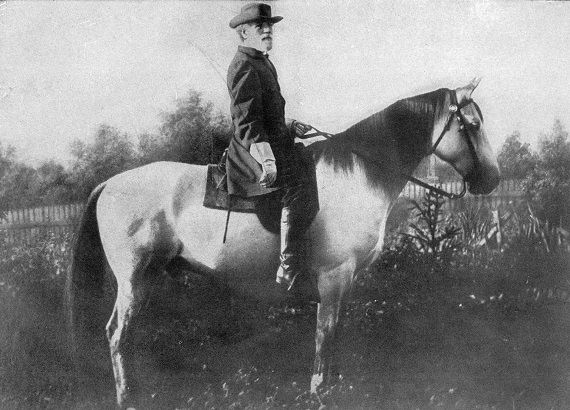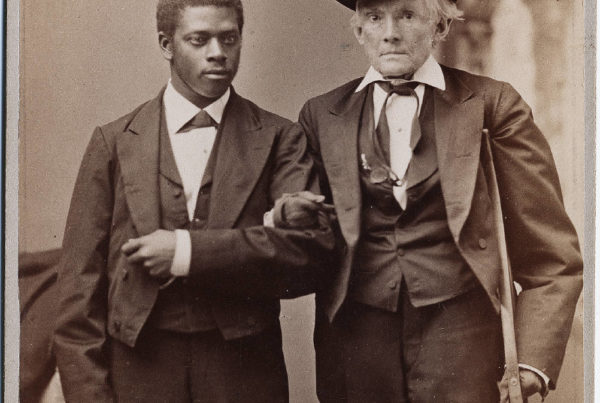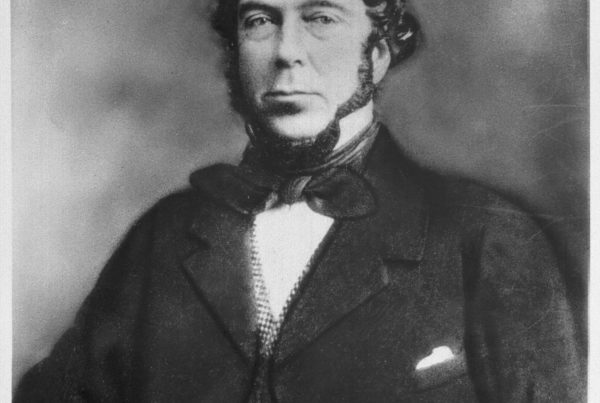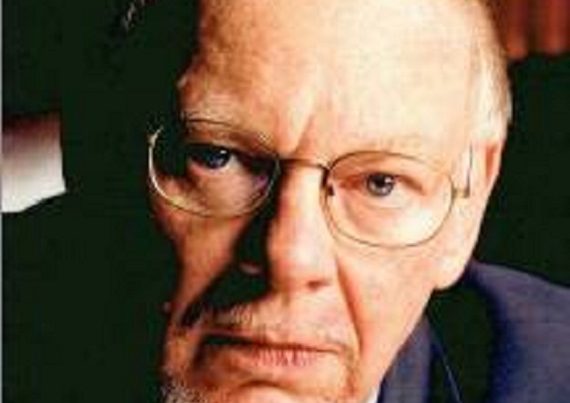“And the cause of all these things was power pursued for the gratification of avarice…..” — Thucydides
Lee made few political statements, as befits a soldier. When he did it was almost always in private and in response to questions. The most important of such statements is his letter to Lord Acton after The War, which will be treated later. Yet Lee made two of the most important political decisions in American history. Both of which had far-reaching effects.
The first of these was his decision to resign from the U.S. Army and serve in defense of the invaded South.
Let’s dispose of the charge of treason. It is amazing that there are still at this date, a century and a half after the fact, and long after Lee was accepted as a premier American hero, people who throw out this accusation. Through the mystery of the internet, I have been hearing from such people fairly often. Those who declare Lee an irredeemable traitor nearly always use violent, hateful language against Lee or myself or both. Such people’s ignorance of the founding principles of the United States is truly pitiable. Their worship of the government right or wrong is scary and suggestive of fascism. President Eisenhower once wrote an eloquent letter explaining to an unreconstructed Yankee his mistaken view of American history in calling Lee a traitor.
A few indictments for “treason” were passed down, but not a single Confederate leader was ever brought to trial for treason. Even by those who had denounced them as traitors. That ought to settle the question forever. It is obvious that the victors never wanted to test the charge in the objective forum of open court. To call Lee traitor is a dishonest attempt to pre-empt the very question that was at issue—the nature of the Union. Was George Washington, who had held a royal commission, a traitor for fighting the invaders and would-be conquerors of his country? Was he obligated to fight for the King against the American states? Did not England’s finest statesmen sympathize with the American position? As Douglas Freeman definitively laid it out, the situations of Washington and Lee were alike, as were the choices they made. Attendance at West Point and a commission in the Army in no way bound anyone to make aggressive war against other Americans; after all, Southern taxes had paid more than their fair share of the support of West Point and the Army.
Americans properly swear to uphold the Constitution, not the government. Since the consent of the people is the most basic principle of American government, how could the people of Virginia commit treason against themselves? How could any act in their defense be treason? Incidentally, New England spokesmen had been since 1828 accusing Southerners of “treason” for opposing the protective tariff policy. It was part of their campaign to use the government to feather their own nests and to distract attention from their own real treason during the War of 1812.
Lee was the product of a pre-ideological society, whereas the “treason” shouters are products of post-French Revolution nationalism. Lincoln and his accomplices were modern statists. The Union meant to them the machinery of the federal government, under the control of their party, to be used for their agenda. But as the Southern poet Allen Tate put it, the original Union was a gentleman’s agreement, not a group of buildings in Washington from which sacred commandments were issued.
For a man of Lee’s inheritance the Union was not the government, especially when under control of a minority party obviously hostile to a part of the Union. He could not accept the Republican redefinition of the Union as centralized force. If we study Washington’s cautious progress toward resistance to the acts of the British ministry, we note that he came by stages to believe that the English government had a deliberate intent to subvert Virginia’s traditional liberty. The progression of Lee’s thought in regard to the Republican party was exactly the same.
The Union that Lee had inherited from Washington and served and cherished was a collaboration of patriotic, disinterested, and mutually supportive parts. Such a Union could be broken by abuse of its spirit as well as by secession. The machinery of the federal government represented no eternal supremacy apart from its meaning in such a Union. For Lee, a solemn act of the sovereign people trumped a mere federal election.
We sometimes forget that Lee was a well-educated man who knew Latin, Greek, French, and Spanish and unlike Lincoln had read much history. Unlike Lincoln, Lee did not have a political party agenda to fulfill, only a hope for peace. Unlike Lincoln, he knew the American Founding from the inside, not as theory. And unlike Lincoln, Lee knew the reality of war. In the period before Lee’s resignation from the Army, William H. Seward had been boasting that the South could be conquered in 90 days. “They do not know what they say,” wrote Lee at the time. “If it comes to a conflict of arms, the war will last at least four years.”
People today tend not only to think anachronistically about a supreme federal government that did not exist, they also are inclined to consider Lee’s resignation from the point of view of a career move, as if he were a mere government dependant and job security was his concern. The Virginia historian Philip A. Bruce gives us the proper perspective:
“In order to understand the general influences governing him as a single individual in taking that step, we must understand those governing his people as a whole.”
It was not that Lee had some sentimental attachment to Virginia; it was that he was a part of it. He understood, shared in, and respected the overwhelming public opinion of Virginia. His course of thinking before his resignation kept company with that of Virginia. He shared the Virginia opinion that the North was misbehaving and the South had real grievances, but that the Lower South had acted too rashly. He shared the hope till the last possible moment that some compromise could be found; and he made the same choice of sides when the federal government declared war against the South. Virginia was a people, a living society. The federal government was only a government, like that of George III. Serving the federal machine would require violent aggression against his people. Serving the South required only honourable acts of defense.
As has been often pointed out the decision to resign caused him much anxiety and prayer. Mrs. Lee said that he “wept tears of blood.” This anguish was not about which side to fight on. It is sometimes assumed that Lee was wavering over which side to join. His tears were over the sad condition of the country, which he could do nothing about, and over leaving the service that had been his life. Richard Taylor, of the same Virginia Federalist heritage as Lee, in his memoirs described himself in the secession crisis as carried along by so bewildering a rapidity of events that he felt like a mere stage-hand in some awful tragedy. Lee must have had similar emotions. He said at the time “. . . I must try and be patient and wait the end, for I can do nothing to hasten or retard it.”
There was never any question of which side Lee would choose if forced to choose. It is clear beyond doubt from his letters home from Texas and his conversations with friends there in January and February 1861, that he would never participate in invasion and conquest of the South. Before he left Texas to return to Washington, he anticipated that he would be offered field command of the new army. He had already made his decision, though desiring to postpone it till the last hope of peace was gone.
He wrote to his loved ones from the Texas frontier: “If the bond of the Union can only be maintained by the sword and the bayonet instead of brotherly love and friendship, and if strife and civil war are to take the place of mutual aid and commerce, its existence will lose all interest to me.”
After arriving at Arlington in the spring, it is said that he pointed across the Potomac to the Capitol and said, “That beautiful feature of our landscape has ceased to charm me as much as formerly. I fear the mischief that is brewing there.”
Let’s look at the business of Lee being offered command of the federal army. Most of the facts are familiar. The problem, as with Lincoln in an opposite way, is in getting the historians to accept the implications of the facts. As is known, Lee at Arlington received a note asking him to call on Francis Preston Blair Sr. in Washington. When Lee made the visit the next day, Blair made him the offer on behalf of Lincoln and Secretary of War Cameron.
And who is Francis Preston Blair Sr.? He was a notorious political fixer and insider. He had played that role for Andrew Jackson and had now opportunistically switched to the Republicans. So, the offer to command the army came not from the President, or the Secretary of War, or the commanding general. In came from someone who held no official position (except as beneficiary of lucrative government contracts). This itself shows how little Lincoln and his cohorts understood the South, or a man like Lee, or the deadly crisis they were attempting to manage.
Why did they do this? For Lincoln and Secretary Cameron, whose main qualification for office was his chieftainship of a Pennsylvania political machine, it was Standard Operating Procedure to gain their ends by the use of patronage, that is, bribery. They could not believe anyone would turn down such an offer. They needed Lee, since most of the most highly respected officers of the army had already resigned, and his resignation would be another blow to their prestige. Making the offer indirectly and unofficially was also their SOP. If Lee turned them down, or if they later changed their minds about the offer, they had, in good Nixonian fashion, what they considered complete deniability. And in fact, after Lee turned them down, they did lie. Cameron continued long to claim that such an offer had never been made to Lee, although he finally admitted it to an interviewer in the 1880s shortly before his death.
Here’s a new bit of information that was not seen by Douglas Freeman. ( I am indebted to my good friend Jim Schoolfield of Macon, Georgia for this.) Lee’s kinsman Lewis A. Washington wrote a note in the margin of pages 386–387 of volume 2 of his copy Alexander Stephens’s Constitutional View of the Late War Between the States.
It reads: “Genl. Lee told me himself that Mr. Lincoln through Mr. Blair had made him offers of the most flattering character if he would not resign, & he (Lee) looked upon Blair as the Devil incarnate if such was ever in human form.”
There was no reluctance in Lee’s refusal to serve the Lincolnians. It was never a possibility. The political wheeling and dealing in a national crisis doubtless confirmed Lee’s distaste for the administration. The Virginia convention was meeting and, though Lee did not know it at the time, had enacted secession the day before his interview. The governors of Virginia and six other states had already adamantly rejected Lincoln’s call for troops.
Well before Fort Sumter, Lee would have been aware of the hardening of Republican attitudes. They had at first greeted secession as not serious or with “Let the erring sisters go in peace.” Then the calculations began to be made and called to the attention of the editors and politicians: the ruling powers of the North would suffer a tremendous loss of profits if deprived of the South as a captive market and revenue source. As the great Boston abolitionist Theodore Parker, still revered as an exemplar of high morality, pointed out, the North’s commerce and industry could not survive without the South. Even before Sumter, the Republican papers were calling for the bombardment and seizure of Southern ports so the tariff could be collected. While Lincoln had indicated agreement with the constitutional amendment guaranteeing slavery where it existed, he had also told John B. Baldwin’s delegation of Unionists from the Virginia Convention that he would insist on collecting the import tariff.
Even before Sumter Lee had come to share with his fellow Southerners the accurate anticipation that Republican rule threatened them with economic ruin, social decline, and political disorder.
Lee casting his lot in defense of slavery? Lee shared in Virginia opinion on that subject also. He understood that many wanted to get rid of the institution if some practical means could be found, and that the institution was evolving and being ameliorated. There were at Arlington black people who were both slave and free, not an uncommon situation. Not a single slave had joined John Brown. Lee understood that the Northern attack on slavery was not benevolent or responsible but rather self-interested, irresponsible, and malicious. And he had no reason to think that the peaceful and prosperous Virginia society that he saw around him was somehow evil and blighted when it was common knowledge that in New York City there were at that moment women and children working 16 hour days for starvation wages, 150,000 unemployed, 40,000 homeless, 600 brothels, and 9,000 grog shops where the poor could temporarily drown their misery.
A word about Lee’s political background and his view of secession. Lee’s father had belonged to the minority Federalist, Washingtonian side of Southern politics rather than to the Jeffersonian. This disposition tended to value the Union, as they understood it, highly and to think badly of any notion of State secession. It should be noted though, that Lee’s uncle Richard Henry Lee was an anti-federalist and that Light Horse Harry approved of the state rights position put forward by Virginia and Kentucky in 1798 –1800. Indeed, though a Federalist and unenthusiastic about Jefferson, Light Horse Harry had said at the time that Virginia was his country and he would share her fate, for better or worse.
I have not been able to determine if Lee voted; probably not since he was far from home most of the time. He tended in earlier years to be a sortof Whig conservative, though little interested in politics at all. From his letters, though, it is clear beyond doubt that by the 1850s he firmly supported the Southern position, considering the restriction on the so-called expansion of slavery to be unconstitutional and politically motivated and favouring the policies of the Democratic Pierce and Buchanan administrations. Judging by statements he made, whether he voted or not, he clearly favoured Breckinridge in 1860. This put him even a little ahead of Virginia opinion, since Bell carried Virginia, though by a tiny margin.
At any rate for one who lived by the example of Washington and Light Horse Harry it was not necessary to debate constitutional points. The Right of Revolution was enough when it was clearly the will of his people in resistance to those who had usurped and subverted the Constitution. In such circumstances revolution, for Lee, was both justified and precedented.
As he said after the war: “I fought against the people of the North because I believed they were seeking to wrest from the people of the South their dearest rights.” And another time after the war he said: “I did only what my duty demanded. I could have taken no other course without dishonour. And if it were all to be done over again, I should act in precisely the same manner.”
Lee also said that during the war he continued to pray daily for those Northern people. Only one of many things that makes him nearly incomprehensible today.
I said at the beginning that Lee had to make, without his choosing, two great political decisions that had important effects on the course of American history. The second was his decision to surrender his army and to play a conciliatory role in the difficult years that followed, setting an example of quiet and constructive behaviour in defeat. We need only think of the consequences that could have followed for the United States if the Southern people had been led into guerilla resistance to the conquerors. Lee knew that he would be looked to by the people for guidance, whether he wished it or not. He deliberately acted for the best as he saw it—kept a low profile, accepted defeat sincerely with quiet dignity, and by both example and counsel set about to repair the fortunes of his people.
Two recent historians that I know of, in the ongoing campaign to Politically Correct American history, have portrayed Lee as not conciliatory at all but as bitter and hostile to the North. It is true that he was privately bitter about a number of things, and with good reason. These two historians are so childishly impressed with the virtue of their side in The War that they really cannot understand how anyone could be bitter about their country being invaded and destroyed and their women and children deliberately targeted. Lee observed privately that the Northern brutality against Southern civilians was unprecedented in civilized warfare. Then there was the seizure and desecration of Arlington, the especially bad treatment of his son Rooney while a prisoner, and the refusal of the government to allow historians to view his seized papers.
An indictment for treason was passed down on Lee by a puppet court, which General Grant, to his credit, got quashed as a violation of the surrender terms. And Lee was called before a Congressional committee which tried to badger and trick him into saying that the South still meditated rebellion and that President Davis had been guilty of criminal acts. Lee’s testimony is a classic example of an honest, intelligent, and patriotic man in a position of little power dealing with unscrupulous politicians. Let’s remember that for the rest of his life Lee was a non-citizen with no rights in the country which his family had helped to found, his life and liberty at the mercy of the bounders and petty tyrants who had come to exercise the power of the United States. Unlike the newly freed slaves and any immigrant just off the boat. There was also a continuous barrage of lies and slanders in the Republican press, which he deliberately chose not to reply to on the grounds that controversy would only prolong Northern hatred.
Lee and the South also had reason to believe that they had been deceived—that Congressional Reconstruction, converting the great Commonwealth of Virginia into Military District No. 1, was a violation of the terms on which Lee and Johnston laid down their arms. The South had been led to believe that the existing State governments —which after all were the legal and true governments of the people—would after acknowledging the defeat of secession be allowed to continue. (Of course, if the Republicans had been honest men who kept bargains there would have been no reason to secede from them to begin with.) It was this situation that caused Lee to say to Governor Stockdale of Texas that if he had known how Reconstruction would turn out he would have died fighting.
One example that Lee set during Reconstruction was not followed. That was refusing to make money on his name, when making money by fair means or foul had become the chief preoccupation of the new America. Lee’s refusal to parley his fame into profit was perhaps the most un-American thing he ever did. But the important thing is that his public example of quiet acceptance was of priceless value in restoring the peace and health of America. At the time of his death, some of the Northern press was already beginning to recognize this and eulogize him as among the greatest of Americans, a heritage for all the country. Such an estimate of Lee could hardly be avoided since the opinion of the civilized world had already declared it so.
It is also worth mentioning that in his last years Lee was disgusted with the rising of Prussian militarism. General Sheridan thought Prussian policy was too easy on enemy civilians.
It might be said that in the postwar role he chose for himself, Lee made a larger contribution to the future welfare of the United States than most of those who considered themselves saviours of the Union. His goal was to make a genuine peace and to preserve as much Constitutional continuity as possible.
If America today does not wish to share in the glory and honour of Lee and his men, that is a judgment on America and not on them.
Lee’s letter of 15 December 1866 in reply to a friendly query from the British historian Lord Acton, contains his most explicit and considered reflection on the great events of which he had been a part. Though there was much to be said for the Southern constitutional position, such historical discussion was “unprofitable because the judgment of reason has been displaced by the arbitrament of war. . . .” But since the war had been “waged for the purpose as avowed of maintaining the Union of the states,” it had not legitimately overturned the rights of the states within the Union. However, such was the apparent intent of Reconstruction. This presented a grave danger to liberty, civilisation, and constitutional government which, Lee believed, made it of importance to the world. Because, Lee prophesied, “the consolidation of the states into one vast republic, sure to be aggressive abroad and despotic at home, will be the certain precursor of that ruin which has overwhelmed all those [free governments] that have preceded it.”








Well said, sir.
Thanks & praise to your abilities of expression endorsing & embracing the truth.
DEO Vindice
JMWSR